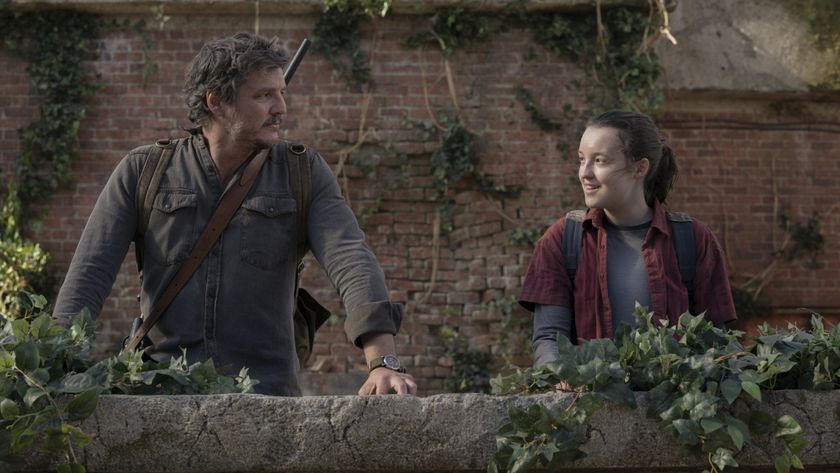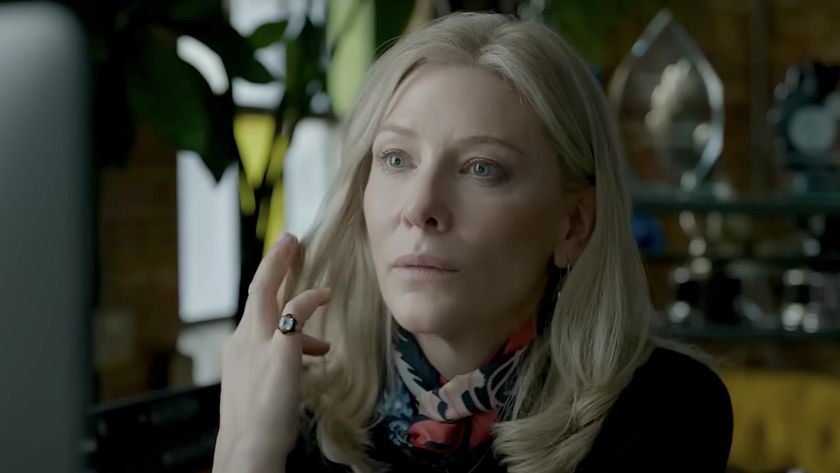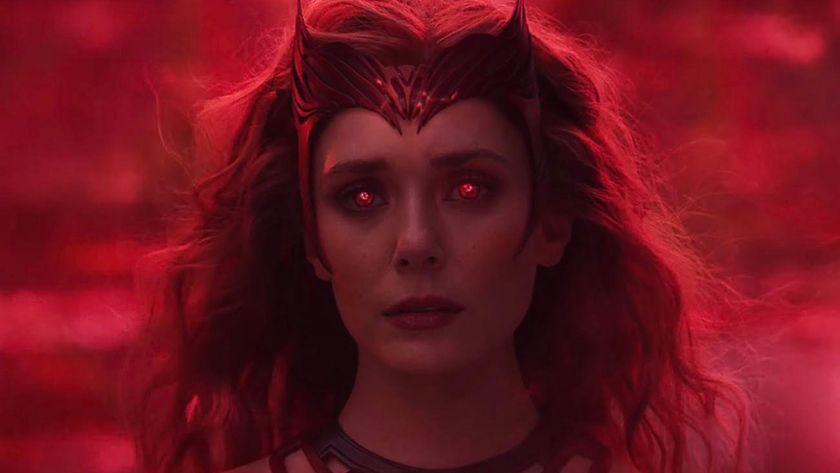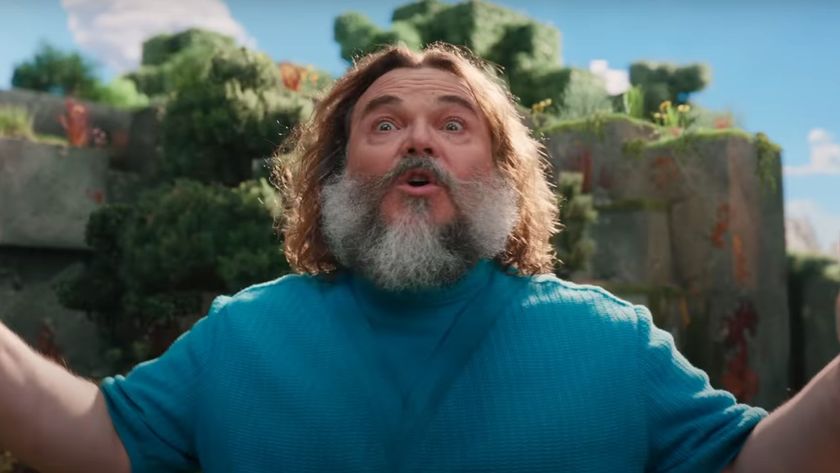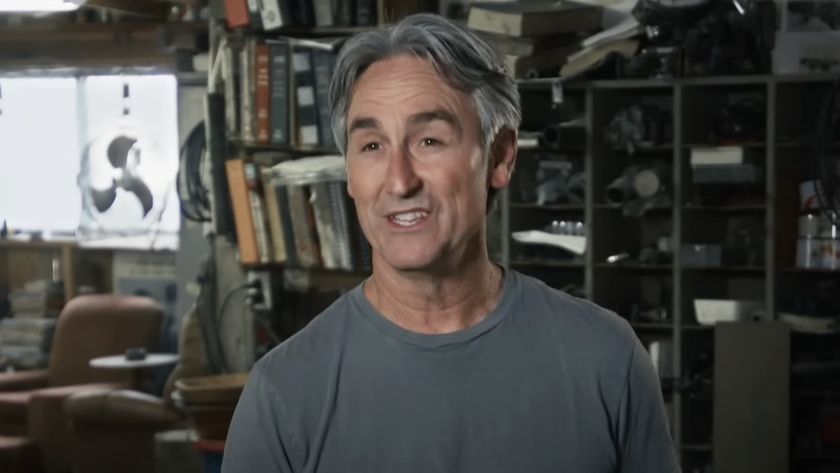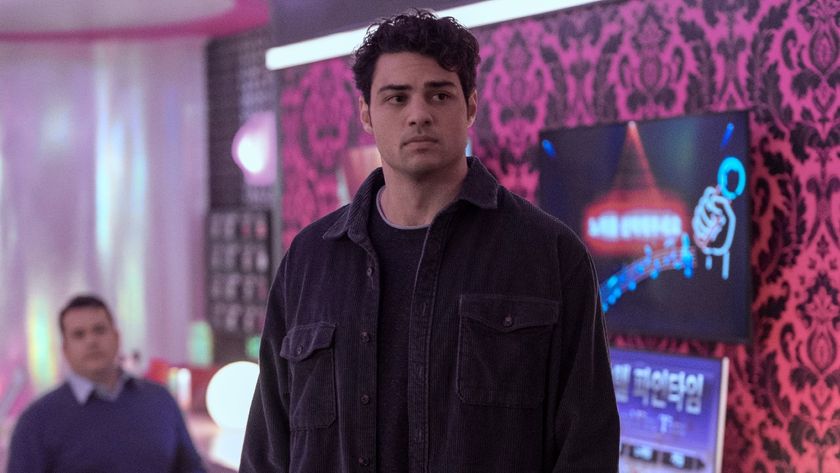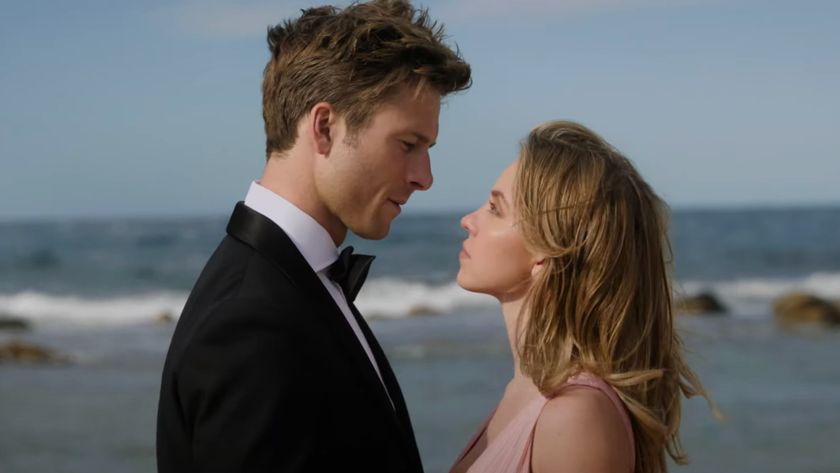Interview: Middle Men Director George Gallo And Producer Christopher Mallick
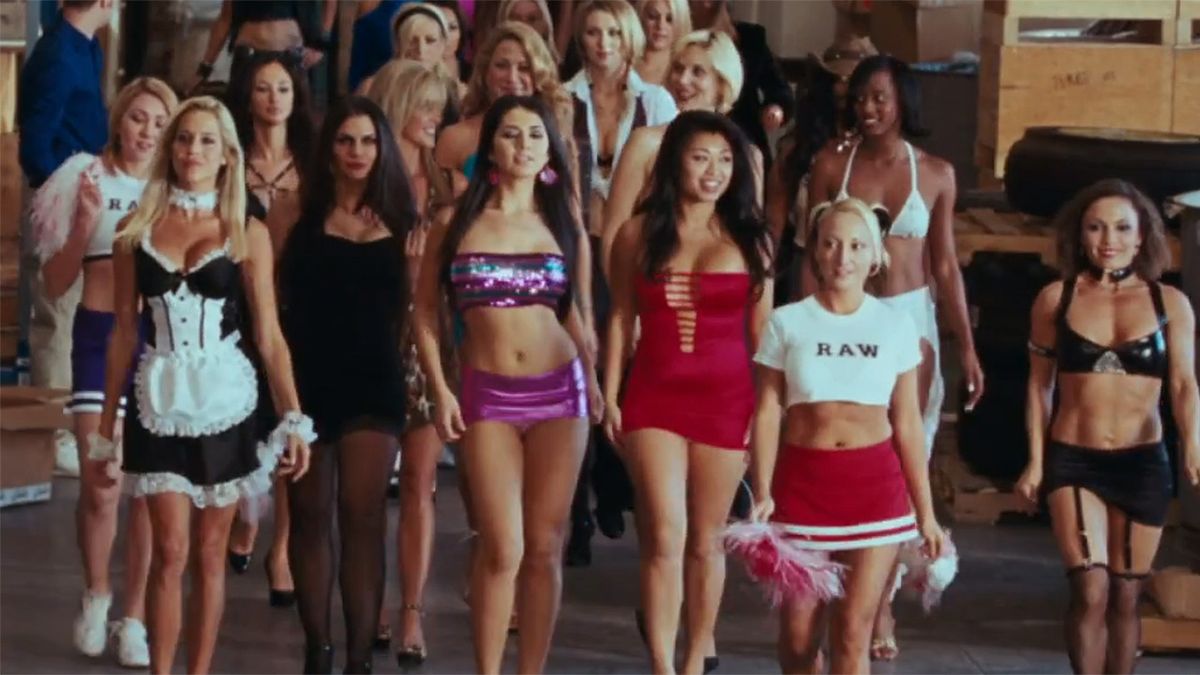
If you’ve been reading my interviews with the cast of Middle Men, you should have an idea who Christopher Mallick is. Without him, the movie wouldn’t exist, and I don’t just mean because he is the film’s producer. Mallick is, in fact, the man that the film is about, Luke Wilson playing Mallick under the name Jack Harris. If you’re doing your math correctly (and I sure hope you are), you’ve figured out that Mallick is also the man responsible for the birth of internet porn. Feel free to leave your thank yous in the comments section.
Sitting down with George Gallo, perhaps best known for writing both Midnight Run and Bad Boys, the pair discussed developing the story as a feature film, avoiding the “porn movie” label and an incident where Giovanni Ribisi gets body slammed. It’s all waiting for you below.
This story originally started off as a television series, what was it like adapting it for a feature film? Why did
George Gallo: It was never officially a television series. There was discussion between Andy [Weiss] and Chris before I had gotten involved about doing it as a TV series, as a cable series like for HBO.
Christopher Mallick: Andy had written sort of a treatment just based on some conversations we had. It wasn’t really adapting. George and Andy were working on something else.
GG: And then one night Andy mentioned, in passing, he said this Chris Mallick project, Middle Men. He starts telling me and I’m like, “Dude, I think that’s a movie. That’s one of the fucking craziest things I’ve ever heard. I gotta meet this guy.” So then I met Chris and Chris and I hit it off and Chris liked Midnight Run a lot, it’s his dad’s favorite movie. So we became buddies and very quickly I started writing the script with Andy and we were all pretty excited very quickly about what it could be potentially.
Well, what it could be, when you just hear the elevator pitch, it could have been really lascivious and gross.
CINEMABLEND NEWSLETTER
Your Daily Blend of Entertainment News
GG: I wasn’t interested in doing a movie about porn, per se. I was more interested in sort of the wild west aspect. You hear about these stories about these guys that trip over a rock in 1843 and they became oil barrens. There’s just something very funny to me about two coke heads in Van Nuys and a Texas business man who become wealthy overnight because someone makes an offhanded comment that there’s nothing to jack off to on the internet. From this you build an empire. That, to me, is an interesting story. Listening to Chris’ exploits there were FBI agents involved in this trying to track down terrorists, and that stuff’s all true. A lot of the tales and the double crosses and I was like, “Man, what a great story this is.” To me, I’ve said this over and over again, the porn and the internet and all the stuff that really makes us laugh in the movie, the movie is really about a guy trying to find his way home. That’s really all it is about. It’s like a guy who makes a deal with the devil in a way and it tries to unravel in some way. It’s like a Greek tragedy, a classic old story that goes back four or five thousand years. Those are the stories I love and their still relatable today, but there’s just a new way to tell that story – with porn stars and gangsters and FBI agents – and Andy and I writing it. And a chance to do all this nuts stuff and to do all these great voices. As a writer a lot of times it’s like, how do you keep something interesting and keep something buoyant. With this story it’s like a collision of all these people.
CM: I think you should tell them what you wrote on the cover of your script.
GG: On the cover of my script there’s sort of a directing mantra, I wrote “Fuck you, keep up.” That’s what I wrote because my whole thing was if you left the theater for a minute you would miss something. I think once an audience gets used to a kind of energy to a film they will stay awake, they have to keep all their receptors open because they’ll miss something. And if you let a movie be slow and take its time people are going to fall asleep. Middle Men is just relentless.
Was one of the challenges to get all of the stories and all of the characters and everything that happened in that whole span of time into the script?
CM: The way that they chose to deal with this is that the film skips over five years. It does that because there are so many different stories with all the people I met and deposits of people we would have had. We actually talking now, we’re having discussions, about doing a cable show that’s sort of the middle years because there’s some pretty hysterical things that happen as all these Beverly Hillbillies kicked over a rock and found an oil well and what happened to these guys all over the world who are getting rich over night. There was way more to be told but I think what they did such an amazing job, and it’s great to have a writer/director because we shot what was on the page. We knew the script worked, we knew the casting would work and we shot what was on the page.
GG: We kept saying the script did work, so once we casted it and all the actors were right we were watching every day as we were shooting like…
CM: Did we get it?
GG: Yeah. We started to feel like, “Wow, this might actually be terrific at the end of this.” Sometimes they just get away from you, the movies. They just do. This one all the pieces just seemed to fit.
It’s a pretty heavily narrated film. What was the decision behind that?
GG: To me a lot of reasons. One was the movie had to have a very strong point of view from jump street. It really was Luke Wilson looking back on the worst night of his life and how he got here. So the idea of this internal voice expressing, “How did I get here? This is just horrible. This is the worst time of my life. Let me tell you how it all happened.” I think, for me it presented a lot of challenges and a lot of things on a lot of levels because a lot of what Luke Wilson narrates, I’d say a third of what Luke Wilson narrates in the film, he didn’t necessarily witness first hand. So, for me as a filmmaker what was fun was, “Wow, I can shoot things that he’s remembering, that he witnessed, there’s things that he heard second hand, there’s things that he third hand or there’s things that he imagines as happening in real life. As a filmmaker I could come up with different ways to shoot these things, and, if you noticed, there was an actual different style for all the different elements. A lot of the time there were things he was imagining I would go dead on, almost a Wes Anderson kind of shot. There was always a different way to get those moments across. If you’re watching the movie you can just sense that something different has happened when the camera stops moving somehow. To me it was also a way to take this insane, chaotic mess and keep grounding it. Because I think if he didn’t remind you where you were at times you could really lose your grip on the movie.
CM: It was a tool not a trick.
GG: It was definitely a tool. It was a way of reminding you of what was going on and to comments on how fucking ridiculous a lot of it was. Like when they go to James Caan, “Of all the people in the world, who do they go see?” and then they cut to Jimmy Caan. I love the irony and the way that he viewed Jimmy Caan as just this scum bag. It’s just a great tool.
Can you give us an example of a story from the five year stretch that we didn’t see in the film that we might see in a TV show?
CM: The thing that jumps my mind is the first thing most guys do in this industry when they make money is not buy a home, or buy life insurance. They would buy cars, and they’d post on these websites, these chat boards, I just a Saleen, I just bought a BMW. Literally these people would have their first car be a $300,000 car. They had so much money. And what was it George said, your dad used to say.
GG: Some people aren’t meant to have nice things.
CM: This is sort of the theme of the cable series is in that five year period I think some people aren’t meant to have nice things and here’s what happens when they get them.
GG: To me it was always a hoot. I believe in cutting actors loose, hire the right people and cut them loose. Don’t sit on them. The most fun was between Gabriel and Giovanni, I said, “Just imagine you’re these guys. What the fuck would you buy if you had $100 million?” So we were laughing and say “I get it,” and then they’d pick out their wardrobe with Sharon Davis, this insanely gifted costume designer, she’s done other movies for me. They would just buy the most outrageous shit. Did you see that thing with the skulls on it? And they would just show up on the set and it would be like, “Yeah, that’s perfect.” I couldn’t beat that.
CM: We laughed, everyday Gabriel showed up in a new costume. It was all Gabriel and Sharon. And the crossbow, did we tell you the crossbow story?
No.
CM: Giovanni walked up to me at about seven in the morning in location in Arizona. He came out of his trailer and I was standing on the curb and he said, “I’m gonna need a crossbow for this scene.” And I said, “You know we’re just shooting, it’s you and Gabriel and Luke in an office. You’re talking about a check.” “Yeah, I need a crossbow.” “Okay, George we need a crossbow.” So we did and it’s a very memorable and funny scene. That’s the stuff I love in films. I now watch films with a different eye and I like those little things.
GG: They were so into it all the time. Again, especially with Giovanni, and I’ve never seen this happen, and I’m not telling you movie tales, I’m telling the truth. He would not leave the set. He would sit while we were lighting, let’s say we were in the Las Vegas hotel room. Normally you’d rehearse and then the actors then leave and you’d light. He wouldn’t leave. He would sit on a sofa for 45 minutes not saying anything, in character, and then we’d get ready to shoot and he would just do his bit.
CM: There’s the scene where the Russian bodyguard brings him in the strip club and they’re trying to get a club gig and he throws him on the ground. The kid that played the Russian bodyguard is a friend of mine and Giovanni kept punching him in the neck and he was like, “You have to throw me.” And he was like, “I’m not going to throw you.” And he’s like “You have got to make this real.” So Giovanni started hitting the guy, you see how big the guy is, and he got pissed. Giovanni was like, “You can’t hurt me you little bitch.” And he body slammed him, and Giovanni, if you look at the scene carefully, his shoes fly off. That’s how hard he threw him on the ground. That’s not a thud that we added in post. He bruised his back horribly, but he was up and he was like, “That’s how you make great fucking movies,” and I was like, “Okay. We’ll cripple your ass if you want.”

Eric Eisenberg is the Assistant Managing Editor at CinemaBlend. After graduating Boston University and earning a bachelor’s degree in journalism, he took a part-time job as a staff writer for CinemaBlend, and after six months was offered the opportunity to move to Los Angeles and take on a newly created West Coast Editor position. Over a decade later, he's continuing to advance his interests and expertise. In addition to conducting filmmaker interviews and contributing to the news and feature content of the site, Eric also oversees the Movie Reviews section, writes the the weekend box office report (published Sundays), and is the site's resident Stephen King expert. He has two King-related columns.
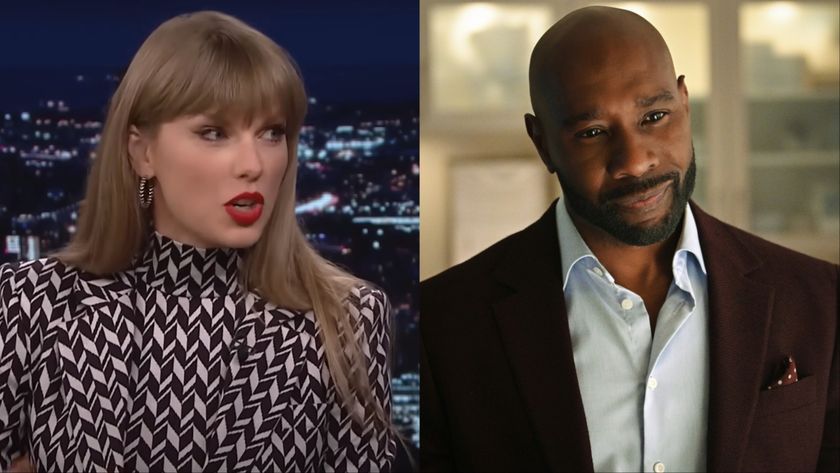
CBS Finally Renewed Watson After Strong Premiere Ratings, And Now I See Why Morris Chestnut Is Grateful To Taylor Swift For ‘Showing Up’
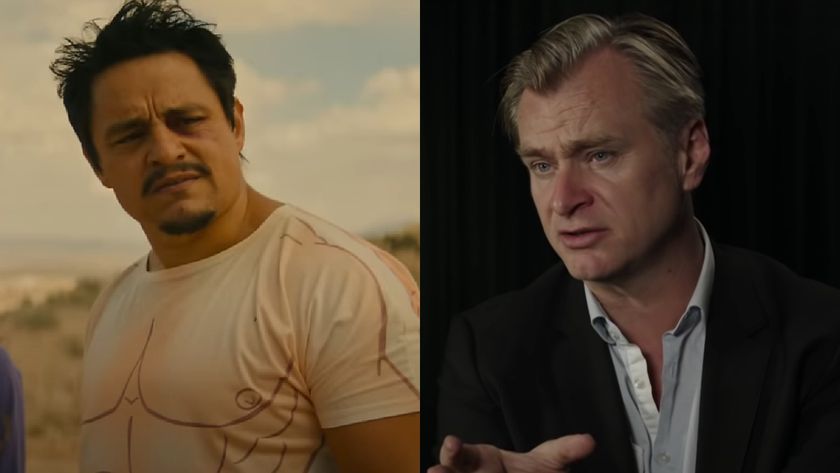
I Had To Ask Jesse Garcia About Filming Christopher Nolan's New Film The Odyssey, And I Was Not Disappointed: 'It's A Very Unique Experience'
